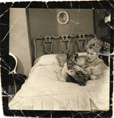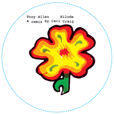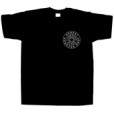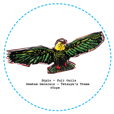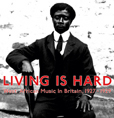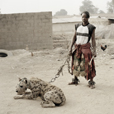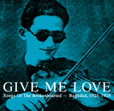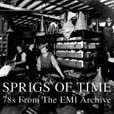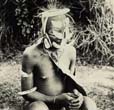Your basket is empty

Red and pink on dark navy. Premium cotton, smooth and durable. 67cm shoulder strap.
Takes twenty-odd LPs.
White on grey. Premium cotton, smooth and durable. 67cm shoulder strap.
Takes twenty-odd LPs.
A top-quality, hard-enamel lapel pin (with back post and gold-metal clutch); the size of a 2p coin.
New colours.
A top-quality, hard-enamel lapel pin (with back post and gold metal clutch); the size of a 2p coin.
New colours.
Soulful American folk: a gorgeous, heart-stopping mixture of the longing you get in saudade — singers like Cesaria Evora and Joao Gilberto — and political protest. Will Oldham’s in there; so is Dionne Warwick.
Back with a pared-down, western sound. Bitter-sweet and nostalgic, but cut with longing, fantasy and hopefulness, in a daze (sometimes child-like) over lost love, lost innocence, lost years. ‘****’ (Mojo).
‘An album of cathartic intimacy, built around electronic textures and sparse percussion, with White’s gently yielding, half-spoken vocals pitched pleasingly between Laurie Anderson and Joni Mitchell’ (Mojo).
Killer EP. Next-level Shackleton.
Taking off from Beaugars Seck’s foundational sabar drum rhythms — recorded by Sam in Dakar in February 2020 — Shackleton has constructed a trio of intricately layered, luminous, enchanted, epic excursions. The second is more dazzled and meandering, with jellied bass, insectile detail, and discombobulated jabbering; the third is more liquid, fleet of foot, and psychedelic, with a grooving b-line and funky keyboard stabs, scrambled eastern strings and hypnotic vocalese.
The harmonium in The Overwhelming Yes sounds like Nico blowing in chillily from up the desert shore.
The overall mood is wondrous, twinkling with light, onwards-and-upwards; an uncanny, dubwise mix of the ancient and the futuristic.
Mark Ernestus’ Version is stripped, trepidatious, mystical, and stranger still, with just a snatch of the original melody, extra distortion and delay, and crystal-clear drum sound.
So… Twenty minutes of startlingly original music, with Shackleton the maestro at the top of his game, and a characteristically evilous dub by Mark Ernestus. Mastered by Rashad Becker; handsomely sleeved.
Sick to the nth. Love 4 Ever.
Carl Craig back on Honest Jon’s, in devastating form: nervy and urgent, epic and apocalyptic, kicking and funky. Lagos re-tooled in Detroit.
2.5 centimetres in diameter.
With our logo as shown, on the front of shirt; and blown up, centred, on the back.
With our logo on the front of the shirt, as shown to the far left; and blown up, centred, on the back.
These sweatshirts from AS Colour are exceptionally well-made; soft to the touch, with perfect heft, and excellent ribbing around the neck, cuffs and hem.
‘Mid-weight, 320 GSM, 80% cotton 20% recycled polyester CVC fleece. Pre-shrunk to minimise shrinkage, pullover crew, drop shoulder, crew neck, garment dyed, sleeve cuff ribbing.’
The sizing is very generous. Some of you will prefer a size smaller than usual. Please click through the image for a guide.
‘folk album of the year’ (The Observer); ‘***** ... not a note is wasted’ (Time Out); **** Mojo; **** Uncut; ‘Compilation Of The Year’ (The Guardian).
Alasdair Roberts, Nancy Elizabeth, Michael Hurley, James Yorkston, Victoria Williams, Richard Youngs: six ravishing, luminous new interpretations. Short-run vinyl sampler, fine pressing, silk-screened sleeves.
Chaabi — ‘of the people’ — has its roots in the Andalusian music of Moorish Spain, spreading to North Africa with exiled Jewish and Moorish communities; but it really took off in post-WWII Algiers…
Diplo / Newham Generals / Elewedu Of Agege
Fuji Ouija / Tetsuya's Theme / Dance / Thank You
Honest Jon's Records
A Lagos fuji session sets Diplo tearing up walls and stomping across the ceiling; a fragment of afro-folk percussion triggers the Generals’ brilliant futurism; and two sumptuous cuts of the original deal.
‘So it is that Honest Jon’s has (again) unearthed an episode of black music history in Britain: these are tough cuts — in no way easy listening, but absolutely essential’ (**** The Observer).
‘Beautiful, haunting… spiritual reflection is sung with carnal force, songs of romance are rendered like hymns. For a few moments, on these ancient records, Baghdad sounds like paradise’ (Rolling Stone).
‘A wicked sense of pacing, of beauty and absurdity, and an instinctive ear for musical action’ (The New York Times). ‘There’s no theme or continuity… unless you count sheer awesomeness’ (Fader).
Torsten Profrock’s occult homage to UK garage.
Two-step waylaid in the scuffed, churning, sub-heavy terrain running from his Chain Reaction days to Monolake, mysteriously entangled with the distressed tracks of old Ugandan 78s.




